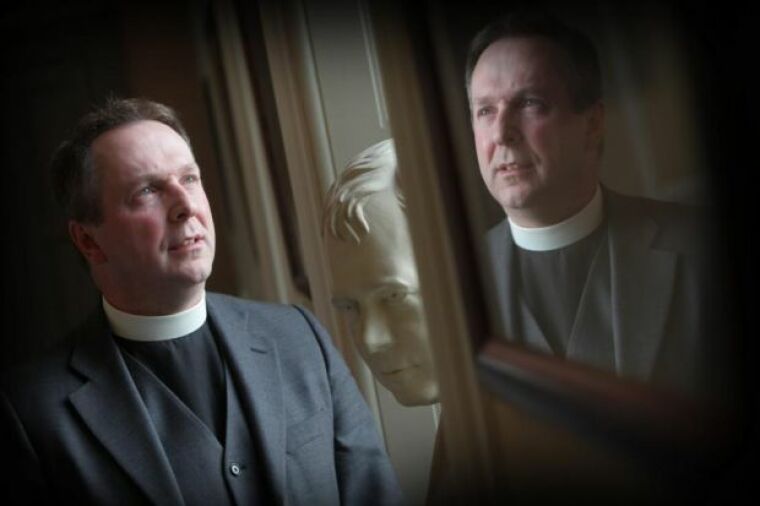Scottish minister preaches Jesus did not die for sins

EDINBURGH, Scotland (Christian Examiner) – A Church of Scotland minister is teaching his congregation that Jesus did not die for the sins of humanity, calling the traditional understanding of Jesus's atoning sacrifice "well past its sell by date," and "ghastly theology."
Rev. Scott McKenna, a minister at Mayfield Salisbury Parish Church in Edinburgh, a congregation of 500, said in a sermon in March that though Jesus's death is foundational for Christianity and there is "widespread understanding that he died in our place – Jesus paid the price for our sins – in my view this theology is an obstacle to evangelism in the 21st century."
"It is an obstacle because it depicts God as a potentate who demands blood for offenses He has suffered. Our sins have offended Him and He demands a blood sacrifice," McKenna said. "I'm almost embarrassed explaining this theology because it is well past its sell by date, and in some sense is quite immoral."
McKenna said he did not want to be perceived as mocking previous generations of Christians who have understood the death of Jesus Christ to be a propitiation for sins, or even those who still do, but he said it is a theology that "no longer works."
"It is damaging the church," McKenna said, "And crucially, it does not go back to the Bible."
"Some of the words may be there, such as ransom, but the theology is not," McKenna said. "In the gospels, Jesus was killed by the Roman authorities because he was deemed to be a threat to the state. He died a terrorist, albeit a man of non-violence."
The history of Jesus's death, McKenna said, was that Jesus was killed by the powers that ruled the world and not as a payment for the sins of humanity. He also rejected the idea that Jesus died as a "sacrifice," a word he said means "to make sacred" in the Old Testament. Instead, he said Jews viewed the sacrifice of a lamb as preparing as enjoying a sacred meal with God in the community of Israel.
"As prevalent as it is within and without the church, it is time to depart, to ditch this substitutionary atonement from the church," he said. "It is time to ditch it because it obscures the real meaning of faith, of forgiveness that is done to us."
McKenna, who also preached Sept. 6 that the doctrines of original sin and the fall of man are no longer necessary in "our evolutionary universe," said the real message of the Christian faith is "inner transformation," the same as it is in all other world religions.
McKenna's sermon on the atonement is only now beginning to draw wider interest – and condemnation – since the video caught the attention of Free Church of Scotland Moderator Rev. David Robertson, who challenged McKenna to debate the traditional doctrine of atonement Sept. 30.
Robertson called the teaching profoundly anti-Christian.
"To me this denial of the Gospel is not a form or variant of Christianity, it is not Christianity at all, because it strikes at the very heart of the Christian faith," Robertson said prior to the debate.
In a report on the debate, the Free Church of Scotland minister, who upheld traditional Christian teachings about the sacrifice of Jesus Christ for the sins of humanity, said McKenna and he believed in and were preaching "two different types of Christianity and two different Jesus Christs."
Robertson also said believers who know Jesus died for their sins find it "the greatest comfort and only assurance we have." Robertson asked McKenna to come to the cross, for "that it can be our only hope."
McKenna rejected the overture, again calling the idea of a substitutionary atonement barbaric and "scandalous."
Robertson also offered extensive criticism of McKenna and the Church of Scotland on his blog. The Church of Scotland has, to date, not issued a response to McKenna's sermons. However, it still is Reformed in church doctrine, meaning it still teaches Christ's atonement for the sins of humanity, putting it at odds with McKenna, as well.